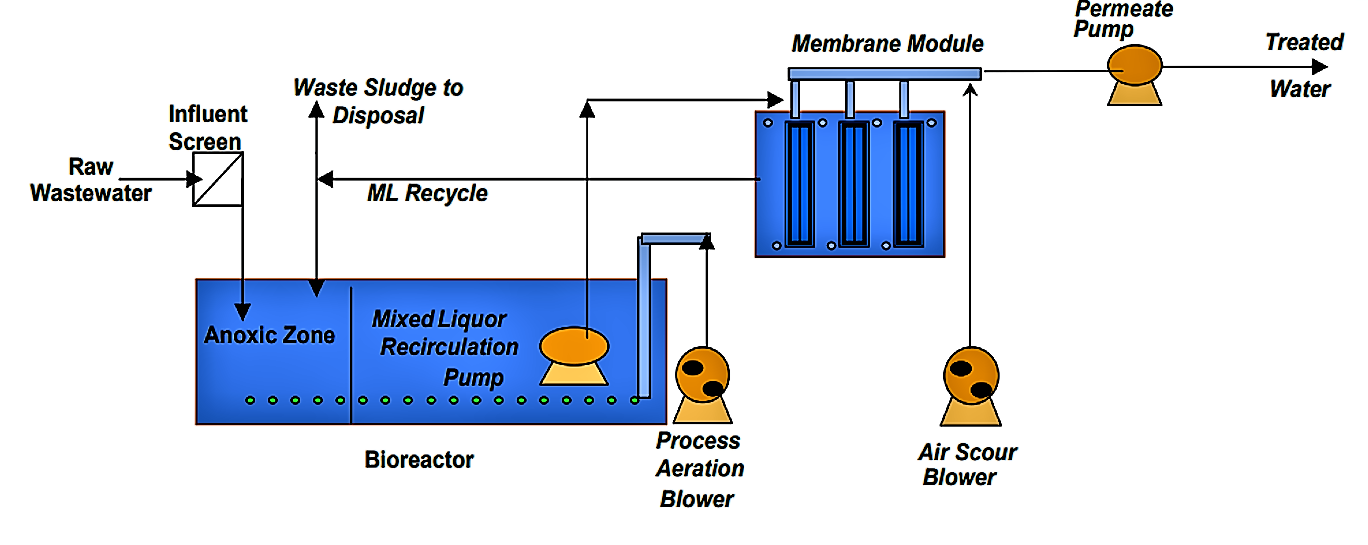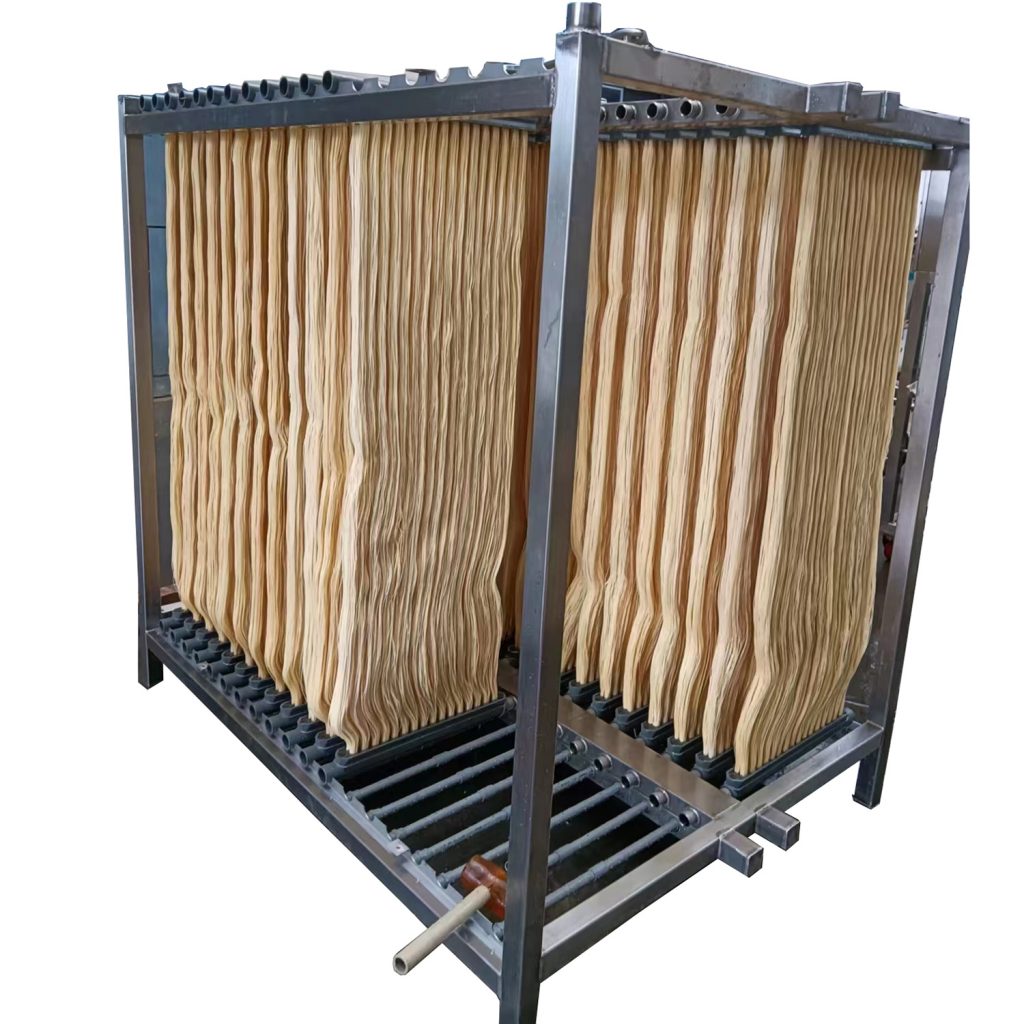How Membrane Bioreactor Can Improve the Quality of Wastewater Treatment
How Membrane Bioreactor Can Improve the Quality of Wastewater Treatment
Blog Article
The Advantages of Membrane Layer Bioreactors in Lasting Wastewater Monitoring
Membrane layer bioreactors (MBRs) stand for a crucial improvement in lasting wastewater management, efficiently merging organic therapy with sophisticated membrane layer purification modern technology. As the demand for lasting services increases, checking out the diverse advantages of MBRs may disclose unforeseen implications for the future of wastewater therapy systems.
Introduction of Membrane Layer Bioreactors
Membrane bioreactors (MBRs) represent a substantial improvement in wastewater treatment innovation, incorporating organic destruction with membrane layer purification to enhance the performance of the therapy process. This cutting-edge system combines the benefits of conventional activated sludge processes with membrane layer technology, allowing for improved solid-liquid splitting up. MBRs use semi-permeable membrane layers to separate cured water from biomass, causing top quality effluent that can be reused or securely discharged right into the atmosphere.
The operational style of MBRs normally includes a bioreactor where bacteria break down raw material, followed by a membrane device that filterings system the blended liquor. This arrangement not just lessens the footprint of the treatment center yet likewise allows for higher biomass focus and decreased hydraulic retention times. Moreover, MBRs can treating a wider range of pollutants, consisting of pathogens and nutrients, making them suitable for various applications, from municipal wastewater treatment to industrial effluent handling.
The integration of MBRs right into wastewater monitoring systems is a measure of a growing fad towards sustainable and reliable practices in ecological design. Their ability to produce premium effluent while lessening area demands positions MBR modern technology as a principal in modern wastewater therapy remedies.
Improved Effluent High Quality

The membrane layer purification process works as a physical obstacle, allowing the retention of microbes and particle issue, which adds to a clearer and cleaner effluent (Membrane Bioreactor). Furthermore, MBRs run at higher biomass concentrations than standard activated sludge systems, advertising more effective biodegradation of contaminants. This leads to a reduction in biochemical oxygen need (BOD) and overall put on hold solids (TSS) levels in the final effluent
Additionally, MBRs demonstrate excellent performance in treating challenging wastewater make-ups, such as commercial effluents and wastewater with high nutrient tons. Therefore, the effluent generated is often of better, allowing for even more adaptable disposal options and reduced ecological effect. Ultimately, the boosted effluent high quality accomplished with MBR technology underscores its vital duty in advancing lasting wastewater management methods.
Water Reuse Opportunities
The top quality effluent created by membrane layer bioreactors (MBRs) opens up significant chances for water reuse in numerous applications. MBRs successfully get rid of pollutants, consisting of pathogens, suspended solids, and organic issue, leading to cured water that fulfills or exceeds governing standards for reuse. This top quality enables the application of water recycling efforts across diverse fields.
One prominent application remains in agriculture, where dealt with wastewater can be utilized for irrigation, promoting sustainable farming techniques while preserving freshwater resources. Furthermore, MBR-treated effluent can be made use of for commercial processes such as cooling, cleaning, and as look at these guys a procedure water resource, dramatically reducing the demand for drinkable water in these operations.
In city settings, MBRs promote making use of reclaimed water for landscape irrigation, commode flushing, and other non-potable uses, adding to the general strength of water system systems. Furthermore, the integration of MBR modern technology in decentralized systems aids in managing local water needs, especially in water-scarce areas.
Minimized Environmental Impact
Exactly how can the adoption of membrane bioreactors (MBRs) contribute to a reduced environmental influence in wastewater administration? MBRs substantially boost the treatment performance of wastewater while minimizing environmental disruptions. Membrane Bioreactor.
In addition, MBRs run at reduced hydraulic retention times contrasted to conventional systems, leading to smaller treatment plant footprints. This compact design reduces land use, thus maintaining all-natural habitats and biodiversity. The process additionally produces much less sludge than conventional techniques, minimizing disposal obstacles and decreasing greenhouse gas discharges related to sludge management.
Furthermore, MBRs help with the recuperation of valuable sources, such as water and nutrients, adding to a circular economic situation. By making it possible for water reuse for irrigation or commercial processes, MBRs help minimize freshwater scarcity, thus advertising sustainable water use methods. Ultimately, the fostering of MBR modern technology represents a significant stride towards reducing the environmental influence of wastewater administration systems.
Economic Benefits of MBRs

In addition, MBRs help with the manufacturing of high-grade effluent, which can be recycled for numerous applications, such as farming watering and industrial processes - Membrane Bioreactor. This reuse capability can considerably decrease water purchase prices, giving an economic reward for markets dealing with strict water regulations
The compact layout of MBR systems additionally leads to decreased land requirements, which is specifically useful in metropolitan areas where property is pricey. By lessening area, towns and industries can save money on land procurement and maintenance expenditures.
Additionally, MBRs commonly require much less regular maintenance and have a longer lifespan than traditional systems, better adding to cost financial savings. In summary, the financial advantages of MBRs-- ranging from minimized operational prices to land cost savings and effluent reuse-- make them an engaging option for lasting wastewater administration, offering both long-lasting and immediate monetary benefits.
Final Thought
Additionally, MBRs contribute to decreased environmental effects with small styles and lower Read Full Article sludge generation. Economic advantages even more improve their practicality, making MBRs an appealing service for attending to the difficulties of wastewater treatment and promoting sustainable resource monitoring.
Membrane layer bioreactors (MBRs) stand for an essential improvement in sustainable wastewater administration, efficiently merging organic therapy with innovative membrane filtration technology.Membrane layer bioreactors (MBRs) stand for a considerable improvement in wastewater treatment technology, incorporating organic degradation with membrane purification to improve the effectiveness of the treatment procedure.Accomplishing enhanced effluent top quality is one useful source of the most considerable advantages of using membrane layer bioreactors (MBRs) in wastewater treatment.Additionally, MBRs show outstanding performance in dealing with tough wastewater make-ups, such as industrial effluents and wastewater with high nutrient lots.Incorporating membrane bioreactors (MBRs) right into wastewater administration not just minimizes environmental influence however also provides significant financial benefits.
Report this page